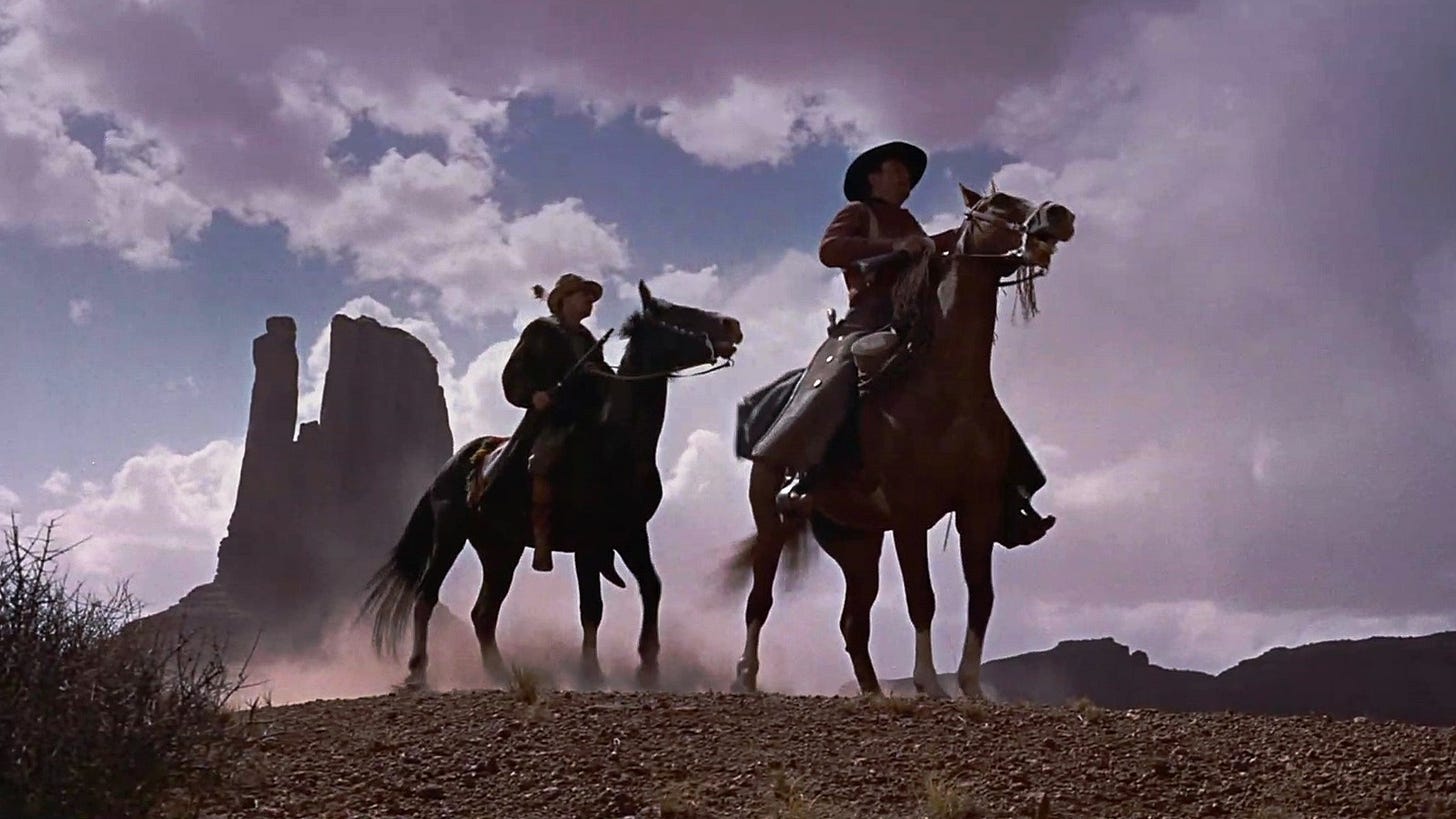The Searchers asks us (and is quite upfront about it) to suspend our knowledge of history and of the human condition to regard American Indians as a bunch of malicious savages. Notably, the categorization of Native Americans here is racial but not genetic: having Indian ancestry doesn’t doom Jeffrey Hunter’s soul, and being of pure Northern European immigrant stock doesn’t guarantee Natalie Wood’s. The film, in other words, knows that race is a basically social phenomenon, and this drives its central anxiety. The mutability of race is the axis around which its human drama turns.
This human drama is only one of the interesting things the film presents to us, along with Golden-Age Hollywood dramatic-quippy dialogue to put Marvel to shame (“That'll be the day!”), performances for the ages (John Wayne is the legend, but Vera Miles emerges as a standout in her own right), and a score that seems to define what the Western was until the Italians figured on approaching the United States from Mexico instead of the other way around. Ford’s images are instantly classical. His mode at times seems almost borrowed from the silent era, as when Wayne must kill the man Futterman: notice the camera’s remove from the situation; the figures and objects’ arrangement as if on a stage; and Jeffrey Hunter’s jump when the business is done, a ghost of the physical comedy of the 1920s. Deep focus and wide angles are used throughout to ensure spatial and narrative unity and epic scope, while close-ups and the many, many shots of Monument Valley as seen through a doorway (or a cave) remind us that the story of the West, like all epics, is a story of regular people, whose individual drama differs from ours only in that it is heightened by history.
The Searchers presents all this to us, however, on the condition that we accept Indian aggression and white innocence: which is impossible. If you keep thinking about how you’re suspending disbelief, it doesn’t really work, does it? The opening sequence has all the technical attributes it needs to be heartrending, except that it so badly jibes with history as to become nakedly propagandistic. Since from this opening sequence springs the emotional throughline of the picture, the whole picture has the aura of a lie, and a political lie at that.
I occasionally get into arguments with a friend of mine over didacticism. I am against it. It brings into art an un-artistic falsity, a falsity that goes beyond the surface of the piece and corrupts its core, producing an unpleasant, blanching cast. The Searchers is didactic in its own right; it is an anti-Indian morality play. Its didacticism is, at least, interesting, inasmuch as it is a primary document of white insecurity, and it is attached to a technically magnificent film. But while in almost every other respect The Searchers is a better film than, say, Snowpiercer, it retains this same false ring, and that prevents it from being a perfect one.
Unrepentant is not really the right word to describe John Wayne’s attitude toward his Confederate career, since repentance doesn’t seem to be something anyone thinks might be called for. But late in the film, a young Yankee cavalryman shows up, mostly to serve as an object of derision for his fellow-characters and for us, a symbol of how hapless the federal government was against the Indians, especially next to the clay-of-the-earth-just-plain-folks whom The Searchers takes as its protagonists. Given what was happening in the United States between 1868 and 1873, and what was happening in 1956, and what is happening now, it is hard to tell if all the mockery of Lieutenant Greenhill is, as Wayne assures him and us, “Just funnin’, son. Just funnin’.”




